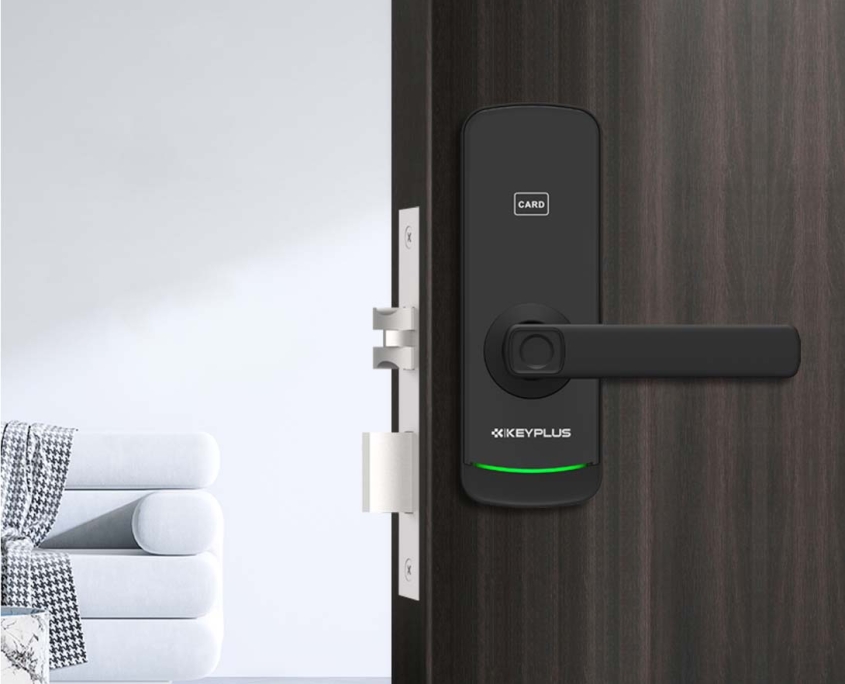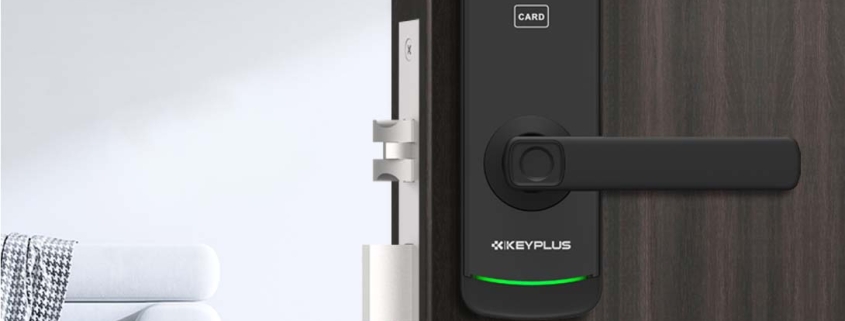What Is an Electronic Key in a Hotel?
When was the last time you checked into a hotel and received an actual metal key? If you’re like most travelers, it’s probably been years. Today, nearly every major hotel uses electronic keys—whether in the form of a keycard, a smartphone app, or even biometric access.
But what exactly is an electronic hotel key, how does it work, and why have hotels made the switch? In this guide, we’ll break down everything you need to know, from the technology behind these keys to their pros and cons.
1. What Is an Electronic Hotel Key?
An electronic key is a digital access credential that replaces traditional metal keys. Instead of inserting a physical key into a lock, you use:
- A keycard (magnetic stripe or RFID)
- A mobile key (via Bluetooth or NFC on your smartphone)
- Biometric authentication (fingerprint or facial recognition in luxury hotels)
These keys are programmed to grant access only during your stay and are automatically deactivated after checkout.
2. How Do Electronic Hotel Keys Work?
A. Keycard Systems (Magnetic Stripe & RFID)
Most hotels still use plastic keycards, which come in two main types:
- Magnetic Stripe Keys
- Work like old credit cards—data is stored on a black magnetic strip.
- When swiped, the lock reads the unique code and grants access if valid.
- Downside: Easily demagnetized by phones, magnets, or wear and tear.
- RFID (Radio Frequency Identification) Keys
- Use wireless signals (like contactless credit cards).
- Just tap the card near the reader—no swiping required.
- More durable than magnetic stripe cards.
B. Mobile Keys (Smartphone Access)
Many hotels now offer digital keys through their apps:
- Bluetooth or NFC-enabled – Your phone communicates with the lock when nearby.
- No physical key needed – Great for contactless check-in.
- Can be revoked instantly – If you lose your phone, the hotel can deactivate access remotely.
C. Biometric Keys (Fingerprint or Facial Recognition)
Some high-end hotels use biometric scanners:
- Scan your fingerprint or face to unlock the door.
- No risk of lost keycards.
- Still rare due to cost and privacy concerns.
3. Why Do Hotels Use Electronic Keys Instead of Traditional Keys?
Enhanced Security
- Traditional keys can be copied or stolen—electronic keys are encrypted and expire.
- If you lose a keycard, the front desk can deactivate it immediately.
Better Guest Experience
- No more waiting in line for a key—some hotels allow mobile check-in.
- No risk of getting locked out if you misplace a metal key.
Easier Management for Hotels
- Staff can track who enters a room and when.
- No need to rekey locks after each guest.
- Can grant temporary access (e.g., for housekeeping or repairs).

4. Common Problems with Electronic Keys (And How to Fix Them)
Even the best technology can have hiccups. Here’s what to do if your electronic key stops working:
Problem: Keycard Won’t Work
- Possible Causes:
- Demagnetized (kept near a phone or magnet).
- Damaged (cracked or bent).
- Expired (if past checkout time).
- Solution:
- Try a different keycard.
- Ask the front desk to reprogram or replace it.
Problem: Mobile Key Not Unlocking Door
- Possible Causes:
- Bluetooth/NFC disabled on your phone.
- Poor signal near the door.
- Solution:
- Check your phone’s settings.
- Restart the hotel’s app.
- Request a physical keycard as backup.
Problem: Battery Dies in the Door Lock
- Solution:
- Most hotels have manual override keys for emergencies.
- Contact the front desk—staff can open the door with a master key.
5. Are Electronic Hotel Keys Safe?
Advantages for Security
- Encrypted codes prevent easy hacking.
- Access logs help track unauthorized entry.
Hotels mitigate these risks by using rolling encryption codes and secure networks.
6. The Future of Electronic Hotel Keys
Hotels are constantly upgrading key technology. Here’s what’s coming next:
Voice-Activated Unlocking
- “Hey Siri, unlock my hotel room!” (Already in some smart hotels.)
Facial Recognition & Palm Scanning
- No keycard or phone needed—just your face or hand.
Self-Charging Locks
- Some locks now use kinetic energy (from door movement) to stay powered.
Final Thoughts: The Convenience of Electronic Keys
Electronic hotel keys make travel smoother, safer, and more convenient. Whether it’s a simple keycard or an advanced mobile key, these systems eliminate the hassle of lost keys and provide better security for guests.
What’s your preferred hotel key type?
- Keycard
- Mobile phone
- Biometric (fingerprint/face scan)
- Old-school metal key (for the nostalgic!)
Please contact us in the message area!








